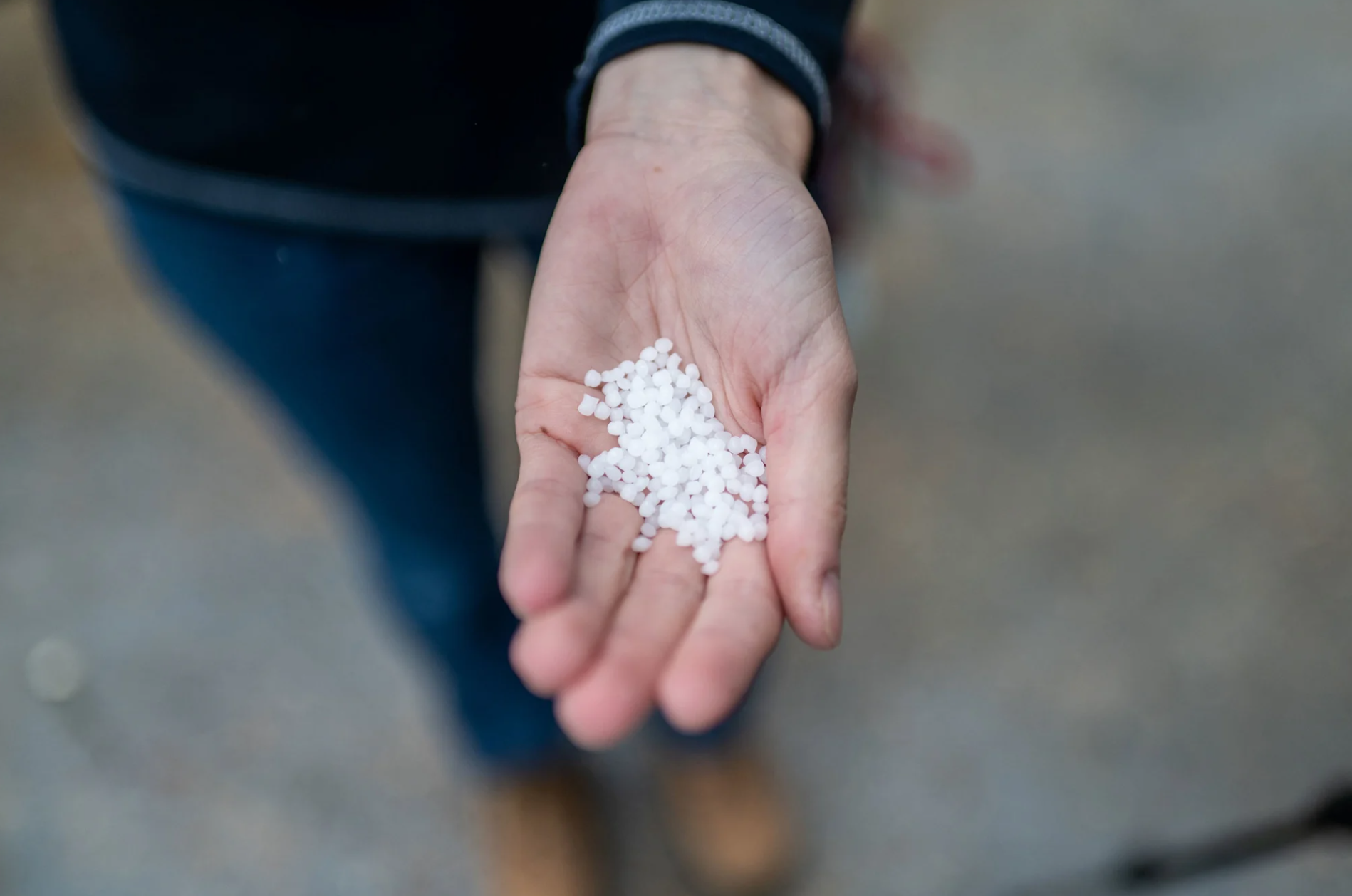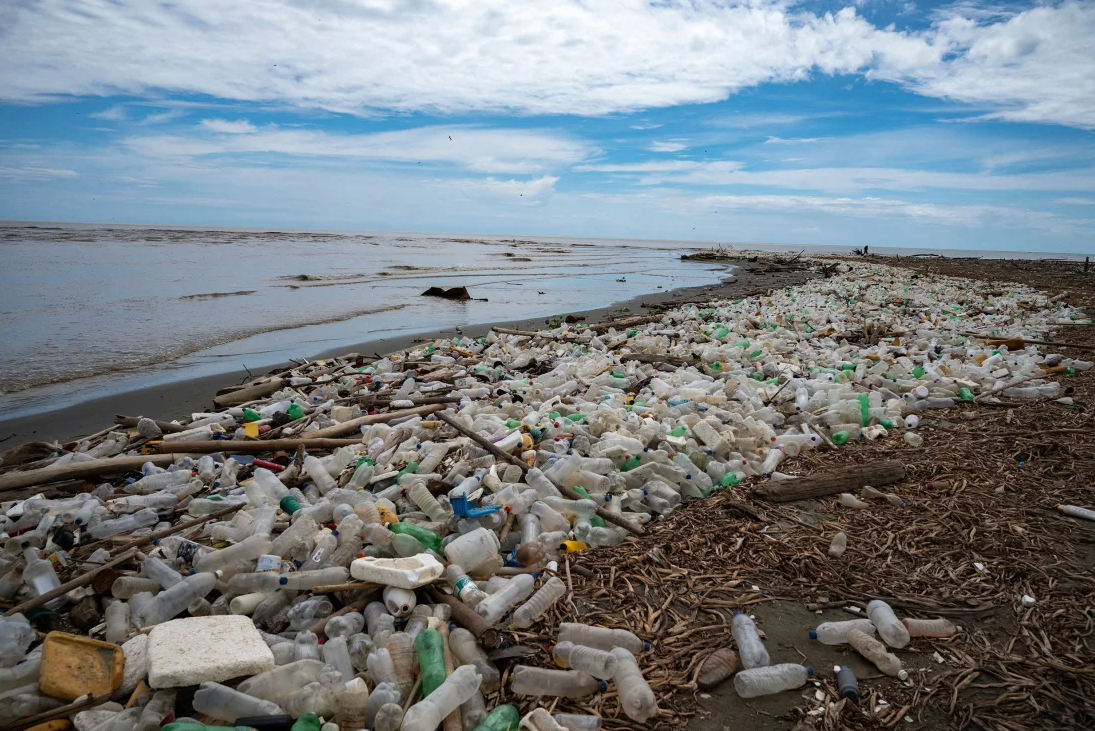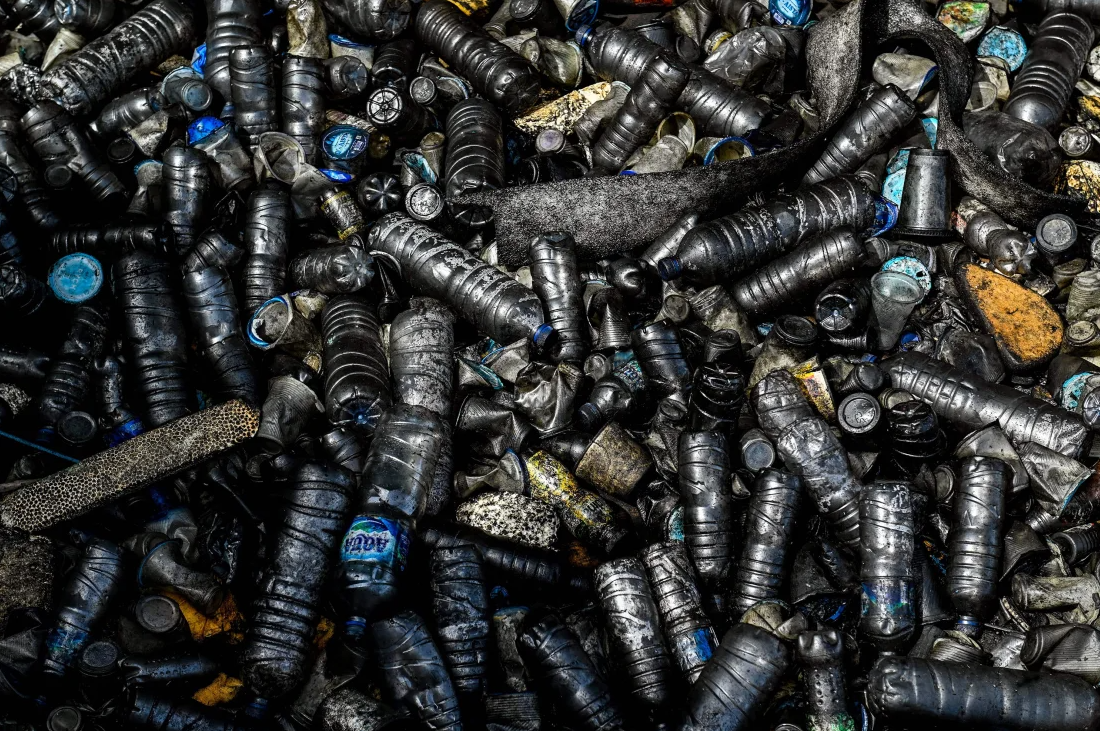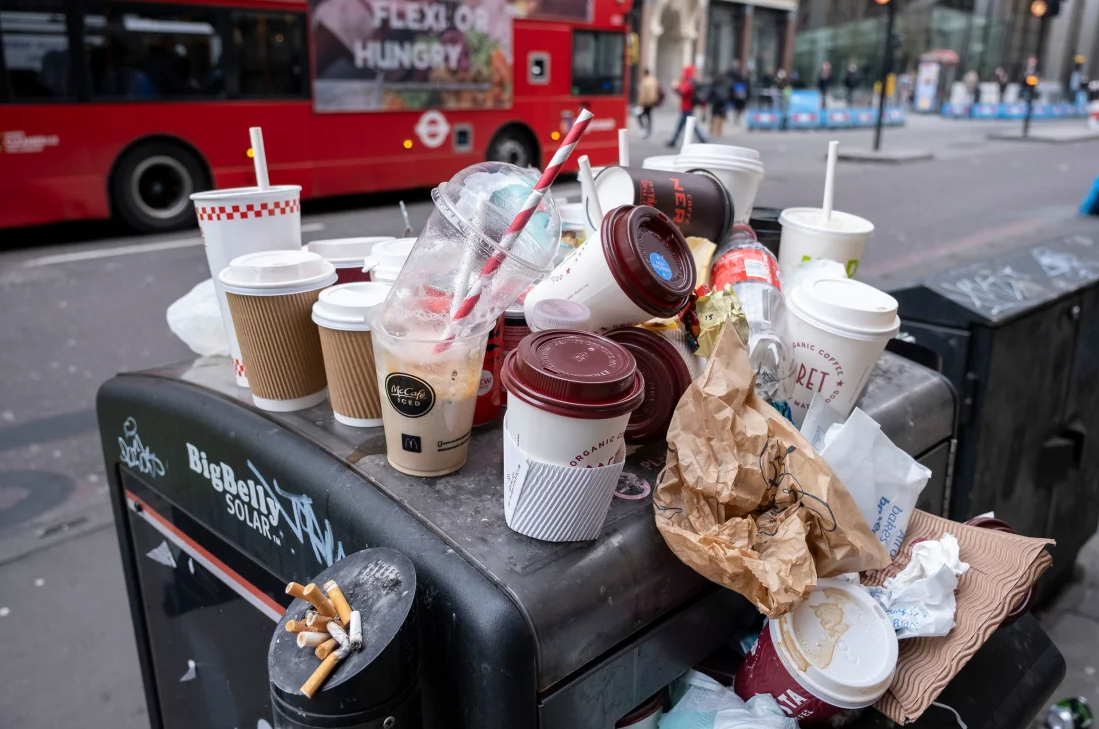
The process, which used a technology called chemical recycling, could be done an infinite number of times, according to Agilyx, the company behind the facility, saving waste polystyrene from landfill, incineration or around 500 years of clogging up streets, rivers or oceans.
Last month, however, after only five years of operating, Regenyx closed its doors. The company framed the closure as a success, saying it had proved its technology "is not only feasible, it is the future."
But the plant never came close to its potential capacity of processing 3,650 tons of plastic waste a year, instead managing just 3,000 tons in total over five years of operation.
Regenyx's closure is just the latest sign of the deep struggles facing chemical recycling, said Jennifer Congdon deputy director of the non-profit Beyond Plastics.
The plastic industry is pitching this technology, also known as advanced recycling, as a great new hope in the battle against the plastic pollution crisis. But critics say it's failing to meet the hype, plagued by missed targets, plants closed or shelved and reports of fires and spills.
The claims are big, but the reality is very different, Congdon told CNN. "It's a PR stunt. It's an illusion," she said.
Big hopes for the plastics crisis
When plastic is thrown out, its most likely fate is landfill, incineration or simply being dumped into the environment. Only 9% of the world's plastic is recycled, a figure that's even lower in the US, around 5 to 6%.
Traditional mechanical recycling, where plastic waste is ground up washed and melted, has not kept pace with plastic production, which has doubled over the past 20 years.
Plastic waste is now everywhere, from the Arctic to the deepest parts of the ocean. It's in the air we breathe and in our bodies. Plastic also fuels the climate crisis — the vast majority is produced using planet-heating fossil fuels and it's a huge driver of global oil demand.
This very visible waste crisis is a big problem for companies that want to continue ramping up production, projected to almost triple between 2019 and 2060.

That's why the appeal of chemical recycling is so clear.
It is an umbrella term for a set of different technologies able to change the structure of plastic, usually applying heat or solvents to break it right down to its chemical elements, then use these building blocks to produce new products, including plastics and fuel.
Where traditional recycling struggles to cope with the vast cocktail of different plastics and additives manufacturers pump out, chemical recycling promises to handle it all – even very hard-to-recycle plastics like films, snack bags or polystyrene.
And unlike mechanical recycling, where the quality of the product declines each time, chemical recycling promises virgin-quality plastics.
The industry has "sought to present chemical recycling as something new and fundamentally different," said Davis Allen, an investigative researcher at the Center for Climate Integrity.
Companies have seized on it. Chemical company Dow says it plans to build multiple chemical recycling facilities in the US and Europe, adding as much as 600,000 tons (1.2 billion pounds) of recycling capacity by 2030.
Oil giant Exxon, one of the world's largest plastic producers, has pledged to process more than 1 billion pounds of plastic waste a year with chemical recycling by 2027 through new facilities in the US, Europe and Asia.
"Chemical recycling transforms used plastic and gives it value," said a spokesperson for the American Chemistry Council, a trade association for US chemical and plastics companies, adding "we must eliminate plastic pollution without eliminating the benefits of plastics."
Fires, spills and low production
For some experts, however, this technology is a very long way from proving itself.
While petrochemical companies often stress chemical recycling's ability to produce high quality new plastics, much of what's produced isn't turned into new plastic products but rather fuel to be burned, Congdon said. "It's like a fancy way to incinerate without saying that you're using an incinerator," she told CNN.
Even for the facilities that do produce new plastic products, there is often very little transparency about the percentage of recycled content they contain, she added.
And while chemical recycling may cope better with the range of plastics out there, it still struggles to deal with contamination. "No one's cracking the nut" of how to deal with the wide variety of plastics people use every day, Congdon said.
The process also requires large amounts of energy to prepare the waste, heat the reactor and separate the chemicals, said Taylor Uekert, a research analyst at the National Renewable Energy Laboratory who researches plastics recycling.
"Mechanical recycling simply uses less energy and chemicals than does chemical recycling, making it overall cheaper and less environmentally impactful," she said.


The industry has certainly faced a bumpy road to scaling up.
As of September last year, before Regenyx closed, there were 11 chemical recycling facilities operating in the US, according to a report by Beyond Plastics and IPEN, a non-profit that campaigns on toxic chemicals. Even if they were all operating at full capacity, they'd only be able to recycle less than 1.3% of US plastic waste, the report calculated.
Congdon, a report author, pored over company press releases and filing documents for the report. "It just was shocking to me how grand their statements are and how little they actually seem to be doing," she told CNN. She found many, like Regenyx, were operating well under capacity.
Exxon's chemical recycling plant in Baytown, Texas, which has a capacity of 80 million pounds a year, has processed 45 million pounds of plastic — or an average of 15 million pounds per year — over the three years it has operated. Exxon told CNN that production is increasing but declined to provide specific annual figures.
A chemical recycling facility in Ashley, Indiana, run by the company Brightmark, has the potential to process 100,000 tons of plastic waste a year through chemical recycling, but five years after breaking ground has only processed around 2,000 tons.
The company's plans for a new plant in Macon-Bibb, Georgia, were shelved in 2022 after it failed to prove its Indiana facility could deliver recycled products to another user, according to local media reports. A spokesperson for Brightmark said the decision to end discussions was "mutually agreed" due to "changes to the production timeline."
The Indiana plant has also grappled with two fires since construction started in 2019, an oil spill and a lawsuit from an employee alleging health problems from plastic dust.
Brightmark said there were "inherent risks associated with complex technologies," adding the company had "invested millions" in workplace health safety measures and the oil spill had "no local environmental impact, no reported injuries, and minimal interruptions."
Turning off the tap
Many in the plastics industry stress chemical recycling is in development phase and teething problems are to be expected as it scales up.
"Just as our smartphones, solar panels and electric vehicles continue to evolve, chemical recycling technologies are scaling up and becoming more efficient," said a spokesperson for the American Chemistry Council.
The ACC said it was "false information" that no chemical recycling plants in the US were yet operating at scale, but could not specify any currently at full capacity, pointing instead to companies expanding or building second facilities as proof of "a clear demand."
As the industry develops, some chemical recycling technologies do have potential, NREL's Uekert said, especially those focused on PET — commonly used in drinks bottles and widely considered one of the easiest plastics to recycle.
But, she cautioned, "there should always be a hierarchy of first reducing plastic production and waste generation, followed by reuse, mechanical recycling and then chemical recycling."
All the researchers CNN spoke to were clear that the number one way to tackle the plastic crisis was to turn off the tap on production.
Plastics are "miracle materials" for products like heart valves and wind turbine blades, said Allen from the Center for Climate Integrity. "But the reality is that a lot of the plastic products that we're producing are just not necessary, especially disposable and single use plastic."
Chemical recycling can "function as a way to delay action" on the plastics crisis, he added.
The plastics industry has fought proposals to reduce the amount of plastic they pump out. Production caps could have "unintended consequences," said the ACC spokesperson, including forcing a switch to materials with higher climate impacts and increasing costs.
The issue has threatened to derail ongoing negotiations for a new global plastics treaty, with many major oil producing countries, along with the plastics industry, pushing back hard on the idea of any production restrictions, instead emphasizing recycling.
With that kind of industry pressure, said Congdon, it's easy to see why chemical recycling may be attractive to policymakers. "They're so hopeful for a solution to the plastic pollution problem that isn't going to force them to make hard decisions," she said.
"Maybe we just need to say the truth," Congdon said, "that we can't continue to use the material the way we have been using it."
Source : https://edition.cnn.com/2024/05/30/climate/chemical-recycling-plastic-pollution-climate/index.html